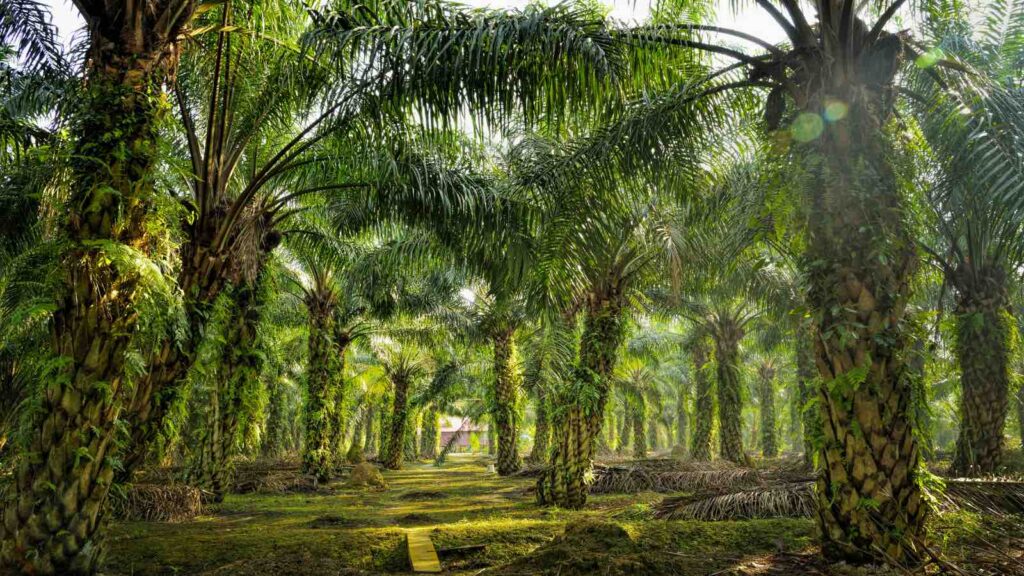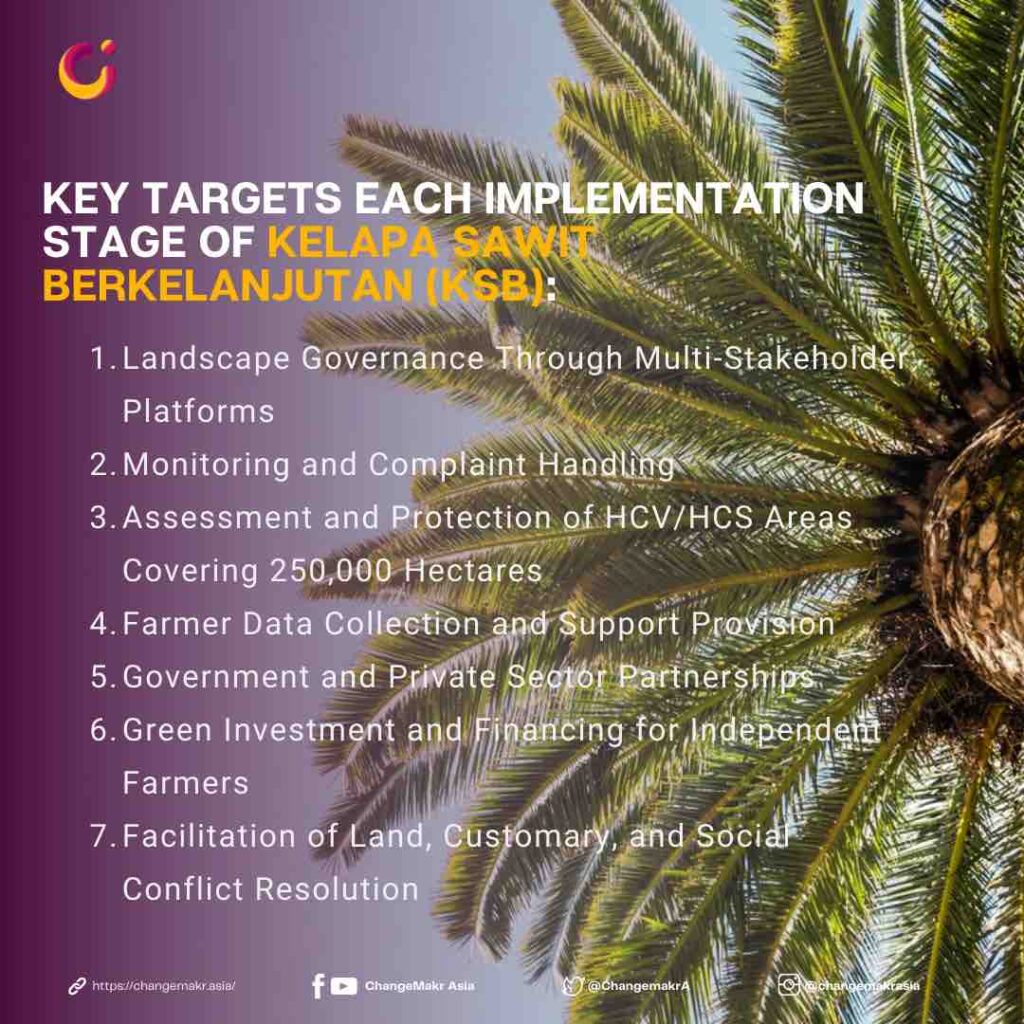The roadmap, developed with input from industry, civil society and technical partners like the Sustainable Trade Initiative (IDH), outlines targets and strategies for establishing a deforestation-free palm oil supply chain while increasing smallholder incomes and social inclusion.
Jakarta, Indonesia — With its vast rainforests and more than a quarter of its population dependent on palm oil production, the Indonesian province of Aceh is striving to chart a more sustainable path for one of its most crucial economic sectors.
At the recent launch of Aceh’s Sustainable Palm Oil Roadmap in Jakarta, top provincial officials vowed to make the ambitious 20-year plan a government priority through coordinated implementation across agencies and collaboration with private partners.
RELEVANT SUSTAINABLE GOALS



“I will ensure this roadmap is integrated into Aceh’s long-term development planning from 2025 to 2045,” said Ahmad Dadek, head of Aceh’s Regional Development Planning Agency. “We will promote sustainable palm oil as a priority program.”
The roadmap, developed with input from industry, civil society and technical partners like the Sustainable Trade Initiative (IDH), outlines targets and strategies for establishing a deforestation-free palm oil supply chain while increasing smallholder incomes and social inclusion.
The Sustainable Plan Oil Roadmap
With some 470,000 hectares of palm plantations — about 9% of Aceh’s total land area — the $3 billion industry provides livelihoods for over 1.5 million Acehnese, more than a quarter of the province’s population. Yet that rapid expansion has also contributed to deforestation in one of Sumatra’s last remaining rainforest frontiers.
“Aceh has immense opportunity to position itself as a global leader in sustainable palm oil production given our forest resources and engaged smallholder communities,” said Dadek. “But maintaining that environmental and economic balance requires a comprehensive, collaborative approach.”
Multi-Stakeholder Roadmap
The roadmap outlines three key pillars: strengthening governance through improved spatial planning and permitting; fostering public-private partnerships; and catalyzing innovative financing mechanisms for sustainable production.
Aceh’s government plans to establish a program management unit to spearhead implementation and coordinate efforts across ministries, districts, the private sector, civil society and farmer groups.
“We cannot realize this roadmap’s bold vision alone,” said Teuku Radja, head of Aceh’s plantation service. “It will require aligning policies, mobilizing funding and bridging community engagement across all stakeholders.”
IDH, an NGO that facilitated the roadmap’s development, has been modeling such collaborative approaches in Aceh’s Aceh Tamiang district over the past five years. There, it helped over 2,200 independent smallholder farmers obtain sustainability certifications and gain better access to finance and training.
“The successes in Aceh Tamiang demonstrated that a territorial approach prioritizing production, protection and inclusion can transform agricultural commodity production,” said Nassat Idris, IDH’s Indonesia director. “Expanding that model province-wide could catalyze a sustainable rural economic transformation in Aceh.”
Environmental and industry groups have cautiously welcomed the roadmap while stressing that real impact will depend on enforcement and garnering sufficient public and private sector financing to realize its goals.
“This is an important first step, but implementation will be the true test,” said Razi Fahdry of the Aceh chapter of Walhi, Indonesia’s largest environmental NGO. “Companies must be held accountable, forests must be protected, and communities must see tangible benefits.”
With global demand rising for certified sustainable palm oil, the roadmap could help Aceh’s growers capitalize on that premium market. But ensuring that economic upside depends on realizing its environmental and social targets through committed cross-sector collaboration.
“This roadmap marriage’s Aceh’s vital economic interests with preserving its unparalleled natural assets,” said Dadek. “Achieving that balance is an immense challenge, but one we must embrace for a truly sustainable future.”
Lead image courtesy of slpu9945 from Getty Images
You may also be interested in :
Indigenous Communities Triumph In Conservation Effort For Traditional Forests



